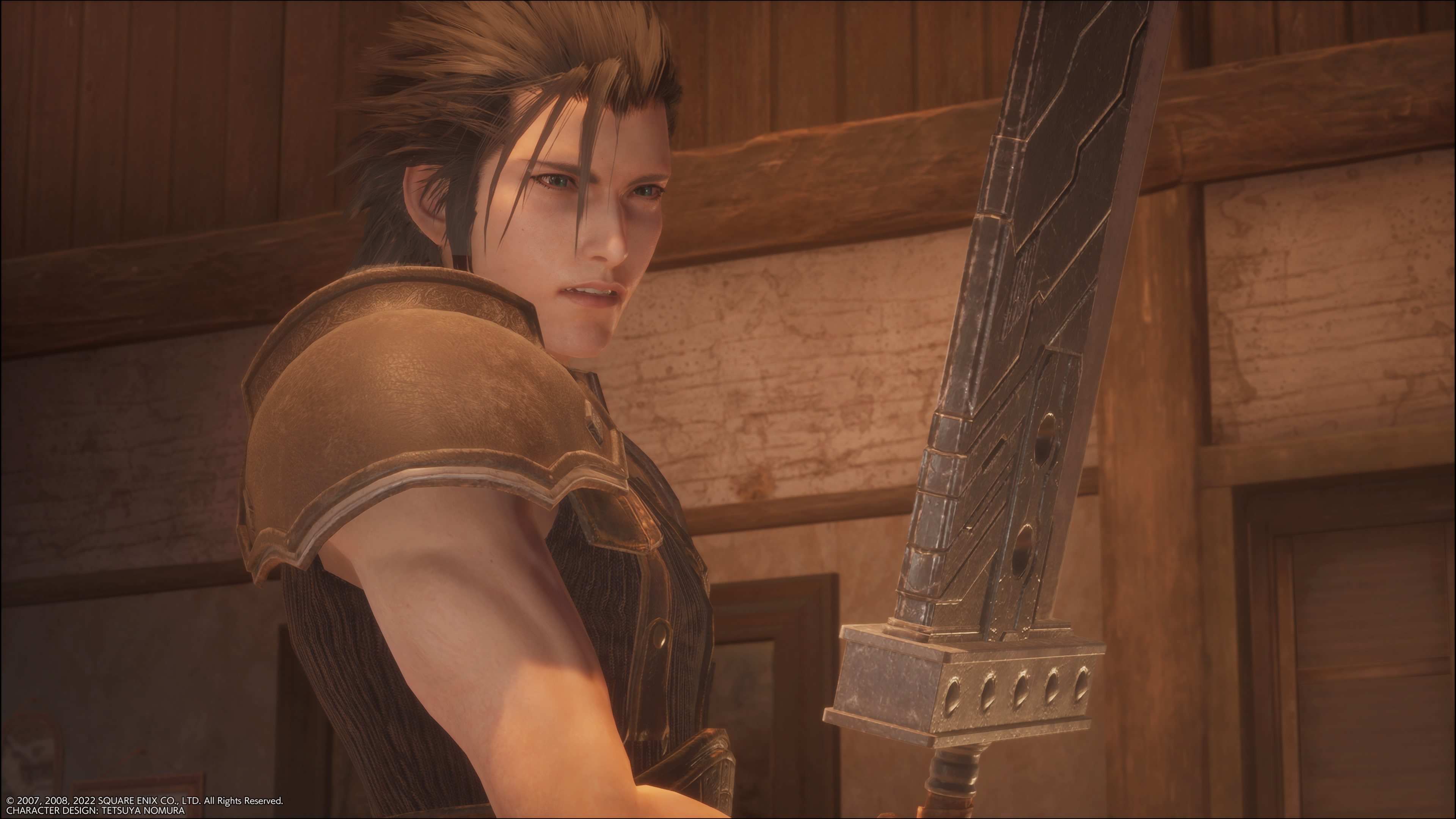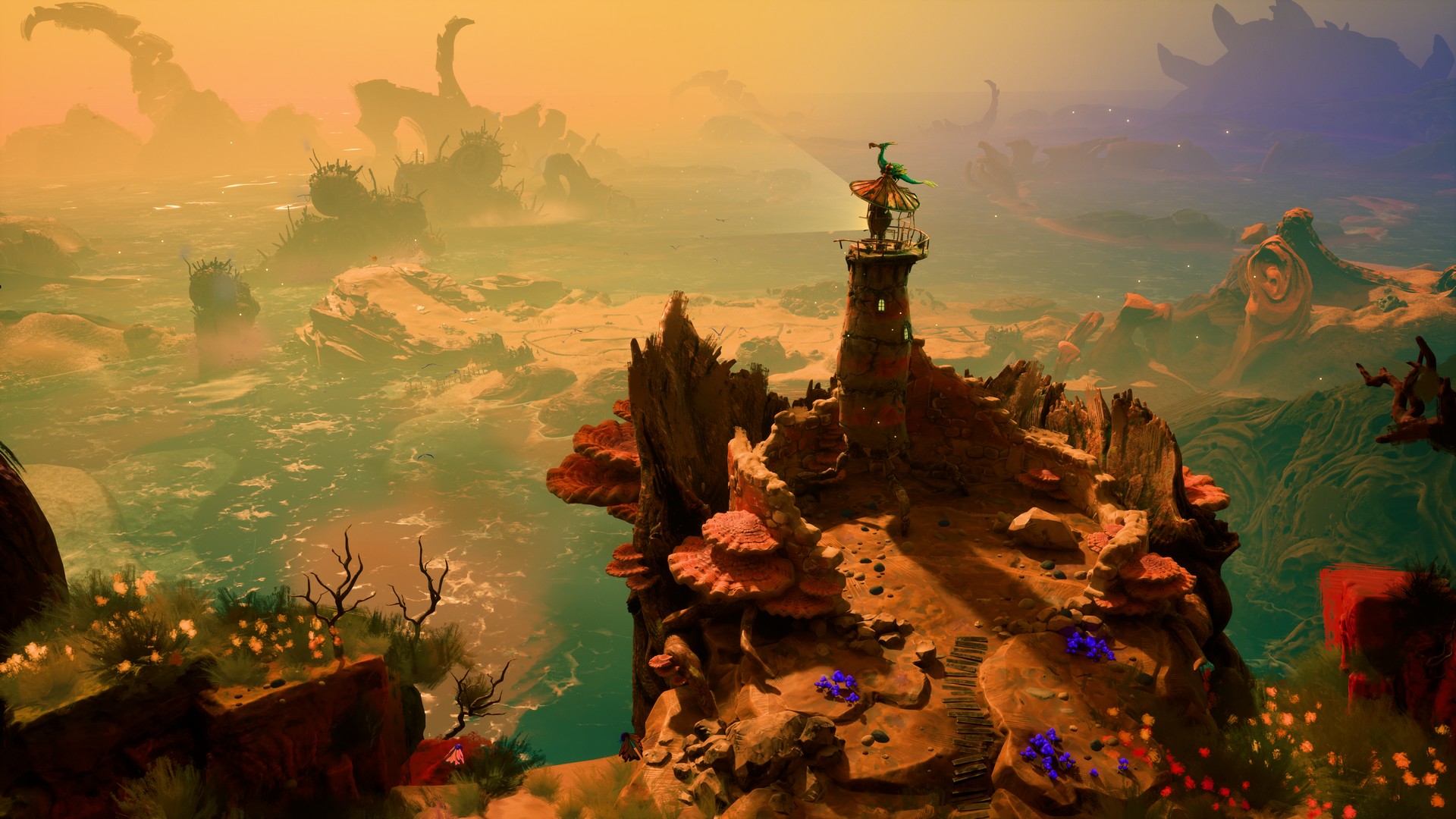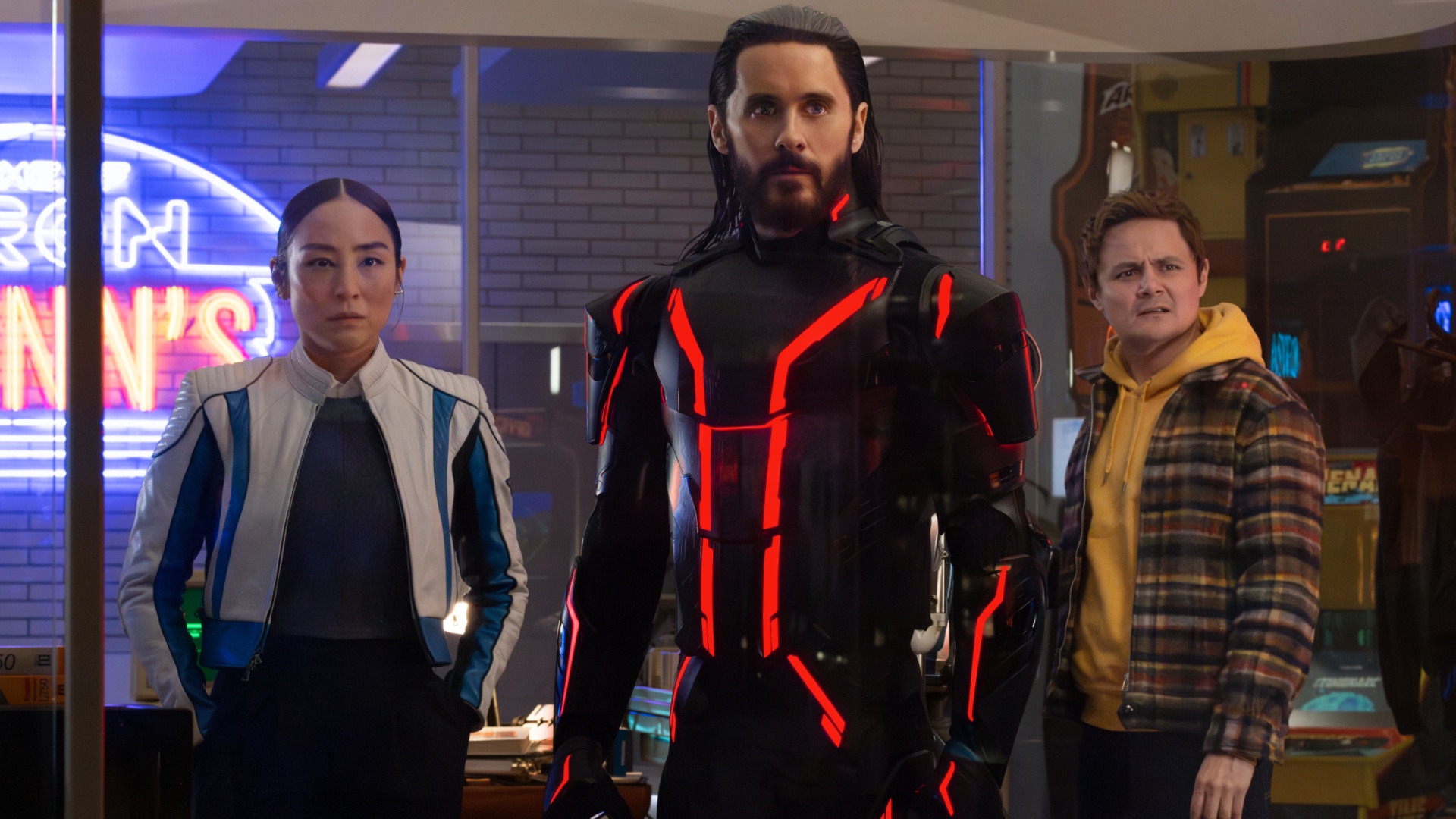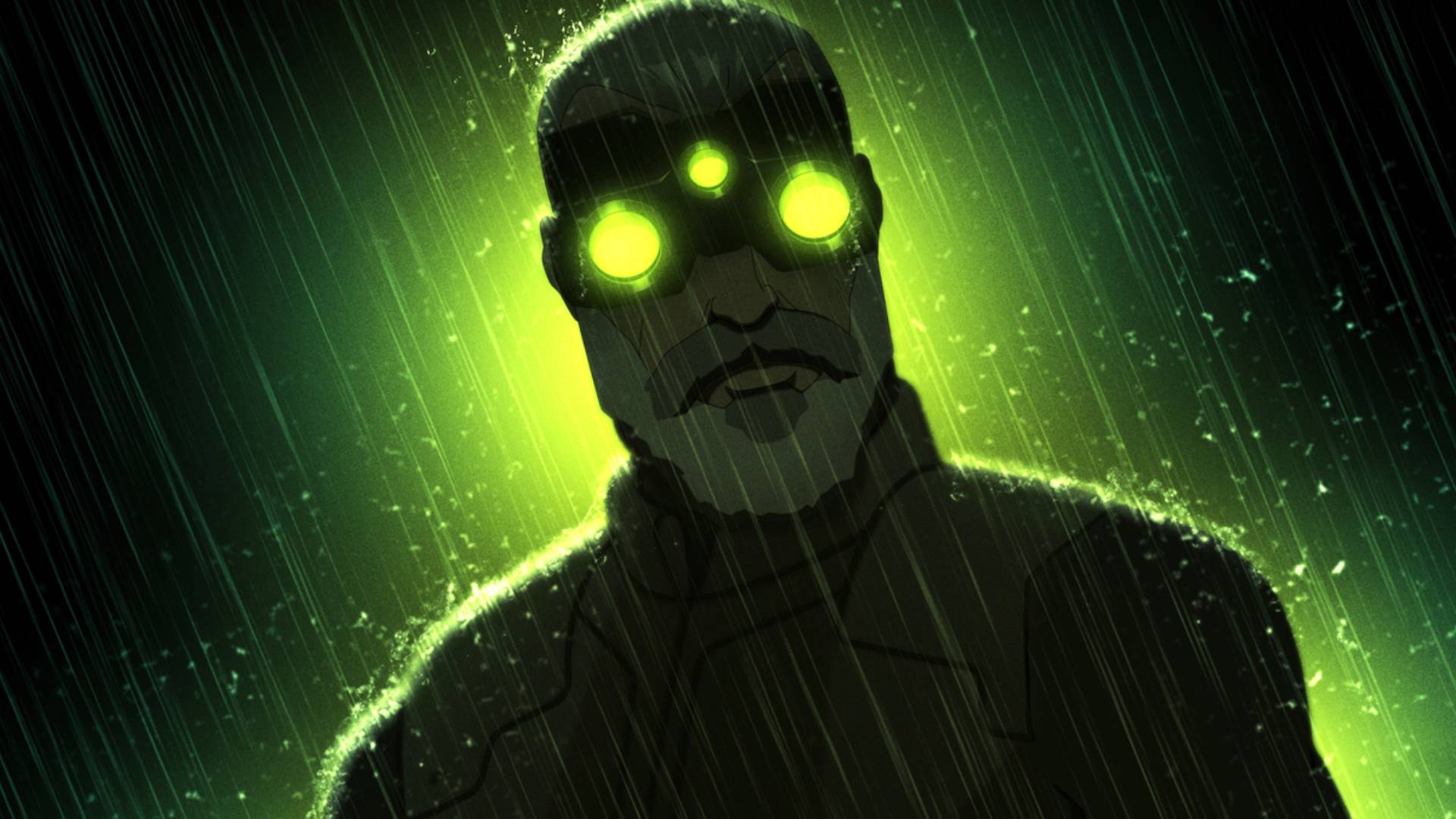GamesRadar+ Verdict
An overhauled and elegant combat system is let down by writing, voiceover performances, and character-building stuck firmly in the past, even if Zack is still an easy hero to root for
Pros
- +
Brilliantly updated combat system
- +
Exceptional visuals and score
Cons
- -
Disappointing writing
- -
Shallow character moments for returning cast
Why you can trust GamesRadar+
Remastering a game like Crisis Core: Final Fantasy 7 is a bit like blowing up a small, beloved photograph. You’re taking something deeply treasured and widening its scope and scale, but in doing so, new attention can be drawn to previously-overlooked imperfections.
Release date: December 13, 2022
Platform(s): PC, PS4, PS5, Xbox One, Xbox Series X, Switch
Developer: In-house
Publisher: Square Enix
Crisis Core: Final Fantasy 7: Reunion has been catapulted to such new heights with its re-release. The 2007 PSP game set before the events of Final Fantasy 7 is now on modern gaming platforms, complete with a fresh coat of paint in upgraded visuals and a re-recorded score, in what Square Enix is calling "more than a remaster," but not quite a full-on remake. Crisis Core Reunion now looks sublime, with a fantastic orchestral score punctuating its energetic combat.
Surface deep
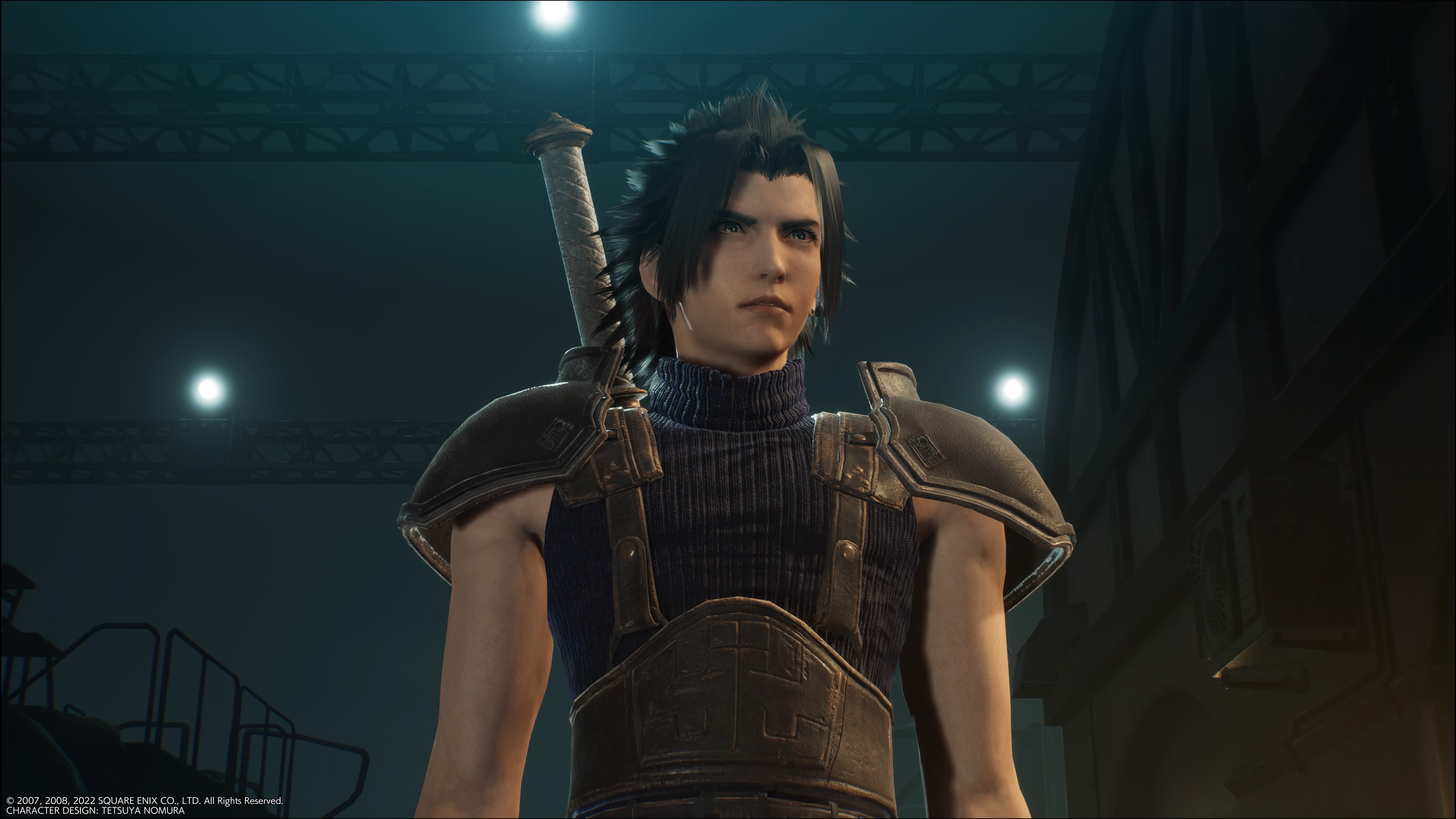
Wielding the iconic Buster Sword this time isn't Cloud Strife, but Zack Fair. Our new protagonist starts out in unfamiliar territory – working with the villainous Shinra corporation, teaming up with Sephiroth and his obnoxiously long katana. You're now an elite SOLDIER operative, quite the stark contrast to Cloud and the rebellious Avalanche, something that immediately makes Crisis Core Reunion fresh for those coming in from Final Fantasy 7 Remake.
Over the course of Crisis Core Reunion, Zack goes from Shinra lapdog to challenging what he thought he knew. Allegiances are torn up, hearts are broken, previously-deceased characters turn up again like James Bond henchmen, and the entire thing is incredibly melodramatic, with the painfully early-'00s style of writing permeating the entire experience. This is perhaps where the comparison of remastering a game and blowing up to reveal ugly unseen details really comes into focus. It's all well and good giving Crisis Core a complete graphical overhaul in line with the superb Final Fantasy 7 Remake, and the 60FPS action is certainly slick, but other details like the game's writing and voiceover performances are disappointing.
Scribe Kazushige Nojima knows writers who use subtext, and he thinks they're cowards. Everyone just speaks whatever they're thinking without the slightest hint of subtlety, with characters proclaiming that they "don't know where my allegiance lies now" if they're puzzled, or "we have to stop (bad thing) from happening!" if anyone's threatened with a bad time.
Zack Fair has been compared to a golden retriever in the past, and that comment is still bang on the money. The prequel protagonist is without a doubt one of the dumbest video game heroes you've ever met, but Crisis Core Reunion just about manages to wield this to its advantage, twisting Zack from a straight up meathead into an idiot you just can't help but love. No matter how frustrating Zack can be, and how lackluster Crisis Core Reunion's character building is, you'll be rooting for him by the closing chapters.
There’re very little meaningful interactions for everyone outside of Zack and Sephiroth, though. With Sephiroth you sort of know what you're getting (take one look at the guy and tell me he won't turn evil, I dare you), but everyone else sort of pops up as Marvel Cinematic Universe-like cameos to splash some serotonin on an overly familiar audience. Tifa and Aerith swoop in and make you go "ah, I know them!" before they're off again, leaving any actual character development by the wayside.
Weekly digests, tales from the communities you love, and more
It's bitterly disappointing that Crisis Core Reunion doesn't let us see new sides of Aerith, Tifa, Tseng, or Rude. One could argue that just seeing them is enough for Final Fantasy 7 fans playing Crisis Core Reunion for the first time – regardless of whether they are new to this universe following the release of Remake, or simply didn't have access to a PSP in 2007 – but in a post-MCU world, where characters are thrust into productions as walking, talking advertisements for the next big thing, it's disheartening that appearances from Tifa and Aerith amount to little more than one-note cameos, particularly with Final Fantasy 7 Rebirth on the near horizon.
Absorbing upgrades
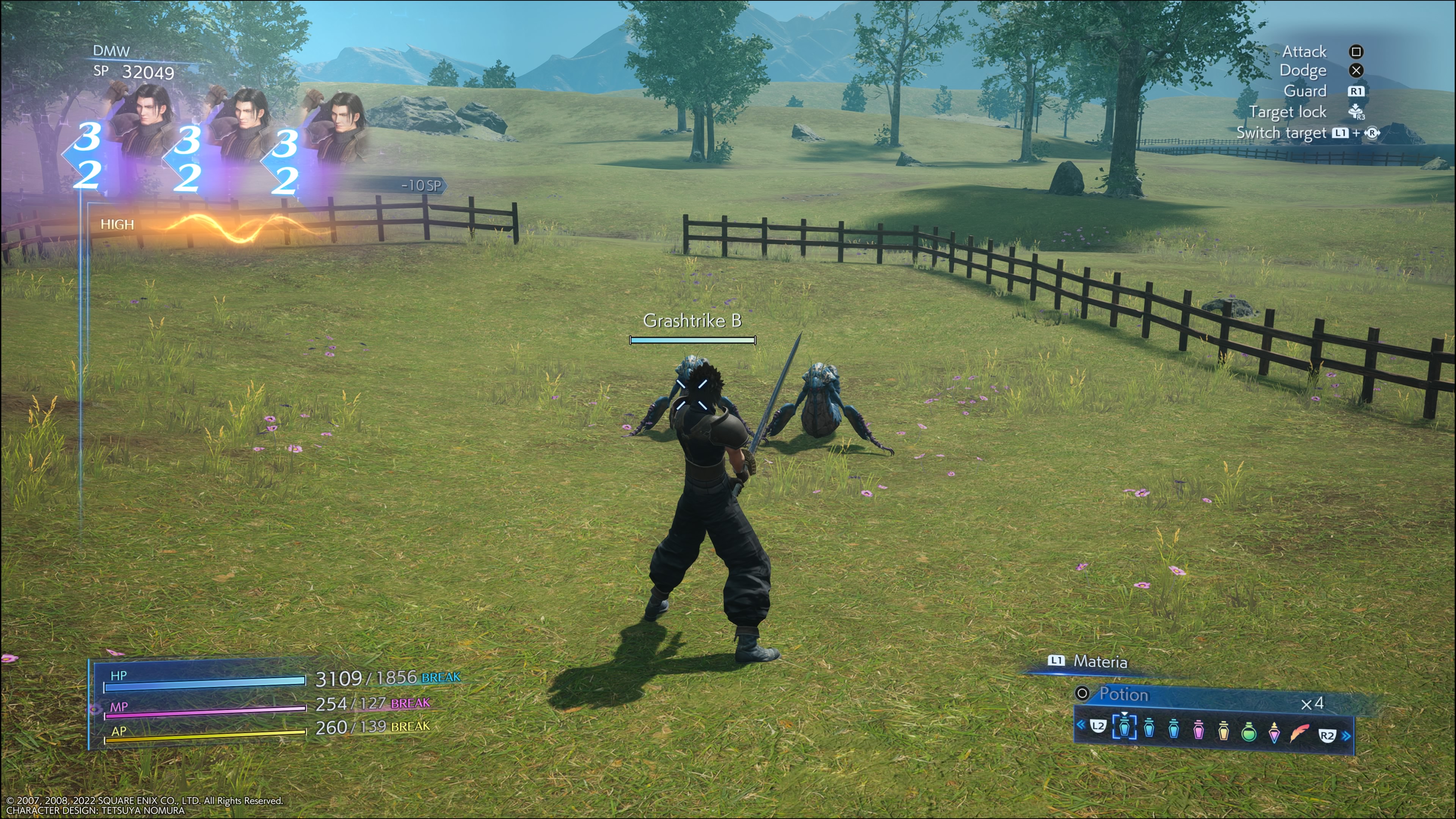
Where Crisis Core Reunion absolutely excels is its retooled combat. The remaster now has the cut and thrust of Final Fantasy 7 Remake's great combat, with Zack ducking and dodging around outstretched swords and hails of gunfire, quickly whacking enemies with a Buster Sword combo, before instantaneously using elemental Materia for bonus damage while on the fly. Materia attacks for elemental damage are mercifully quick to understand and master, brilliantly complementing slicing and dicing with the Buster Sword.
The combat system is fantastic to use, and wonderfully responsive. Dodge and rolling is an integral part of battles, and Crisis Core Reunion doesn't throw an overwhelming number of enemy types at you, so it's not impossible to learn enemy attack patterns and turn combat into a brilliant ballet of swordplay.
Arguably, the biggest point of change in combat from the original Crisis Core is the Digital Mind Wave system. This eclectic creation basically looks like a slot machine with three spinning columns, with entries of allies like Cloud and Tseng, or Summons like Ifrit. If all three columns align with the same image, Zack lets loose with a massive attack reminiscent of that character or Summon. It's a weird-looking system at first, but because Crisis Core Reunion spins the slots while you're in the heat of combat, instead of pausing the entire game like in the original, it's a great complement to the moment-to-moment action, instead of interrupting the pacing.
Combat does have some pretty out there moments, though. A late-game mission tasks Zack with picking up a sniper rifle, temporarily going all Call of Duty, and gunning down robots in a first-person perspective. This switcheroo inadvertently pulls focus onto Crisis Core Reunion's wild tonal shifts: one character can be theorizing about life and death (as they often do in this game), as Zack screams "I don't know what any of this means!" and Sephiroth doles out lore about his shampoo. It’s a case of throwing everything at the wall and seeing what sticks; a slightly unfocused development mindset rooted in the past.
Genre trappings
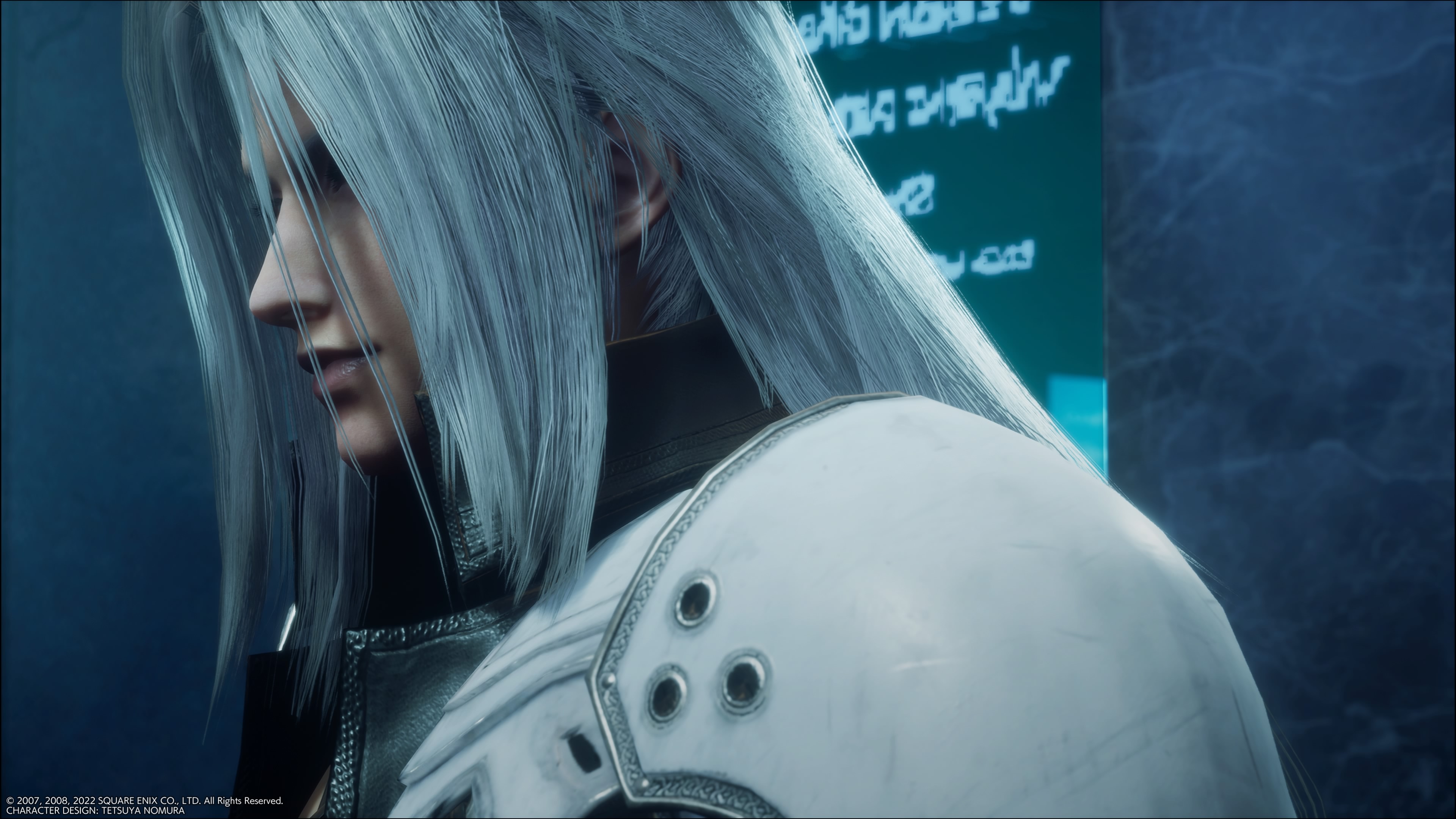
Crisis Core Reunion is, at heart, a fully-fledged JRPG – grinding and all. Side content isn't in the main game per se, but restricted to one-shot missions that Zack can undertake at any checkpoint. They're fast, challenging you to blast from point A to B and kill everything in your wake, no questions asked. Grinding out missions quickly becomes dull though, so you'll often find yourself barrelling through the main story, only to hit a wall against a far tougher opponent, and be forced to grind out these missions to level up. Considering there're bloody hundreds of them, these optional missions can actually outweigh your time spent playing Crisis Core Reunion's main story.
Crisis Core Reunion is a fascinating look into the Square Enix of the past, meshed with Final Fantasy 7's current trajectory in the Remake saga. Zack might be a dunce, and the early '00s-era script fails him miserably, but he's utterly loveable by the game's end, far outshining Final Fantasy 7 stalwarts like Aerith, who mostly seem present for their cameo impact. The retooled combat system is Crisis Core Reunion's most impressive upgrade, an elegant and electrifying system that'll always keep you on your toes with smooth Digital Mind Wave implementation. Given Zack’s inevitable role in Final Fantasy 7 Rebirth, Crisis Core Reunion is an essential part of the overarching Remake saga, even if the writing does hold it back.
Crisis Core: Final Fantasy 7: Reunion was reviewed on PS5, with a code provided by the publisher.
More info
| Genre | Action RPG |
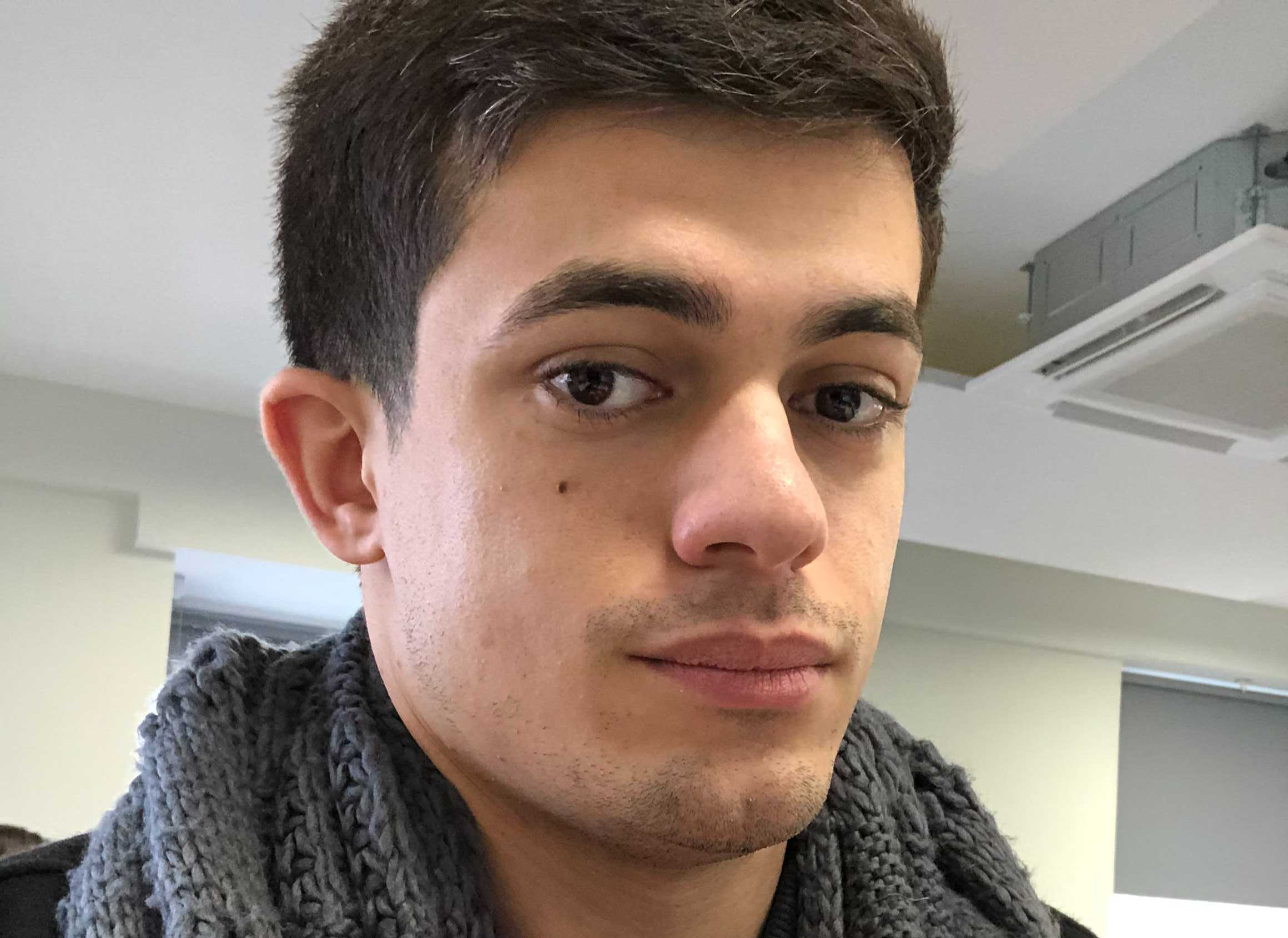
Hirun Cryer is a freelance reporter and writer with Gamesradar+ based out of U.K. After earning a degree in American History specializing in journalism, cinema, literature, and history, he stepped into the games writing world, with a focus on shooters, indie games, and RPGs, and has since been the recipient of the MCV 30 Under 30 award for 2021. In his spare time he freelances with other outlets around the industry, practices Japanese, and enjoys contemporary manga and anime.
